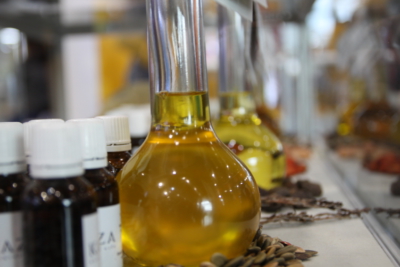Sustainability remains key for European buyers of cosmetic ingredients. The same goes for consumers. European consumers are more informed about issues such as global warming and environmental threats. This trend has led organic, vegan, fair-trade, sustainable and ethically sourced cosmetics to become more mainstream.
A review of Science Direct in 2019 concluded that sustainability impacts occur through all phases of a cosmetic product’s life cycle. But selection of raw materials deserves more attention as information on this topic remains scattered and diffuse. A situation that is still relevant in 2020.
COVID-19 as a disruptor of the market
The COVID-19 outbreak has been a major disruption within the cosmetic industry. For consumers, the crisis emphasises again the importance of sustainability. The pandemic has accelerated some major changes that have been coming on for a long time. Read our separate analysis that focuses more on the specific impact of COVID-19 on the market of natural ingredients for cosmetics.
 Sustainable beauty sub-trends:
Sustainable beauty sub-trends:
Sustainability is related to many different aspects within the cosmetic sector, such as:
- All-natural / organic
- Vegan
- Cruelty-free
- Palm oil free
- Cosmetics made from ethically sourced ingredients
- Recyclable packaging, ideally compostable or reusable
Let’s discuss further three of these sub-trends related to sustainable beauty:
1) All-natural / organic
Consumers are buying natural and organic cosmetics because they perceive these products as safer both for human health and the environment. The popularity of organic certifications in cosmetics is also driven by the use of these certifications in food products. Consumers generally know food labels better than cosmetic labels, and therefore they are interested in similar labels on cosmetic products.
Cconsumer requests for more organic or natural cosmetics are driving demand of natural ingredients from the cosmetics sector in Europe.
2) Vegan and cruelty-free
According to the Vegan Society, the number of vegans in Great Britain quadrupled between 2014 and 2019. With a growing part of the population choosing to change their lifestyle, the cosmetic industry evolved to keep up with the trend. Blogs focusing on listing products as well as guides for vegan brands are popping up to help consumers choose cruelty-free and vegan cosmetic products. These sites also play into consumer demand for increased transparency in cosmetic products.
The cruelty-free trend is not limited to Europe. After being banned in Europe, more and more countries are banning animal testing. For example, Israel, Turkey, Taiwan and Guatemala have already banned animal testing and Ukraine, Colombia, the US and Japan are in the process of phasing out animal testing. New testing methods are emerging, as ingredients and formulations evolve.
3) Ethically sourced ingredients
A report on consumer surveys from the Union for Ethical BioTrade concluded that consumers call for more transparency on ingredient origins. They want more information on how these products respect people and biodiversity. The report added that consumers don’t trust that companies respect biodiversity. In order to convince consumers of companies’ respect for people and biodiversity, they should use authentic stories, proof of good practices on the ground and clear communication.
It helps if these practices are validated by external bodies, such as with Fair Trade certifications. Even though the cosmetic market for Fair Trade certified products lags behind the food market, demand for these certifications is growing in cosmetics.
Sustainable cosmetics are here to last!
 The media coverage and concerns heard during the 50th anniversary of earth day, in the middle of the COVID 19 pandemic, show that sustainability issues are still a relevant topic in Europe. Transparency is essential for consumers, who are increasingly asking detailed questions about the sustainability and origin of cosmetic products and ingredients. Informed consumers are using phone applications or websites to verify the classifications of beauty products based on their composition. For example, INCI beauty in France is an app that helps consumers to access and research ingredient lists of cosmetic products, provides information on ingredient and allows consumers to discuss their experience with other members.
The media coverage and concerns heard during the 50th anniversary of earth day, in the middle of the COVID 19 pandemic, show that sustainability issues are still a relevant topic in Europe. Transparency is essential for consumers, who are increasingly asking detailed questions about the sustainability and origin of cosmetic products and ingredients. Informed consumers are using phone applications or websites to verify the classifications of beauty products based on their composition. For example, INCI beauty in France is an app that helps consumers to access and research ingredient lists of cosmetic products, provides information on ingredient and allows consumers to discuss their experience with other members.
Demand for sustainable ingredients in the cosmetic sector will continue to be strong. At the same time, the pandemic has put a lot of pressure on most supply chains. For more information on that topic, take a look at our analysis of the impact of COVID on the sector natural ingredients for cosmetics.
ProFound translates these trends into recommendations for producers and exporters:
Sustainability within the cosmetic industry is a big opportunity for exporters producing sustainable and/or certified natural ingredients. ProFound has many years of experience within this field and can assist you in every step such as:
- Analysing opportunities within the sector for natural ingredients
- New certifications that will add value to your product on the market level
- Marketing strategy and CSR for improving your branding
- Entering the European market
- and many more
Get in touch if you would like to know more about our work!
